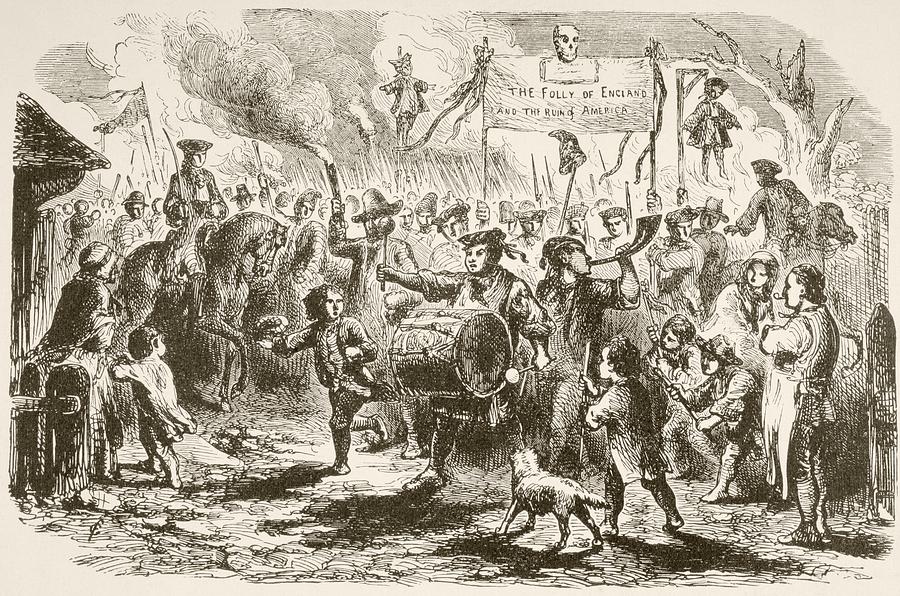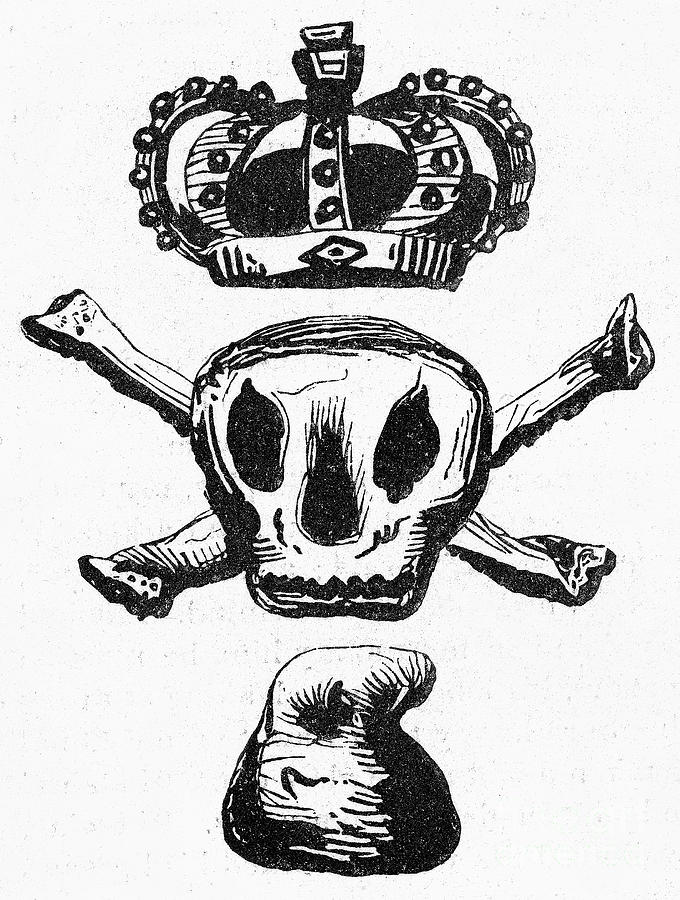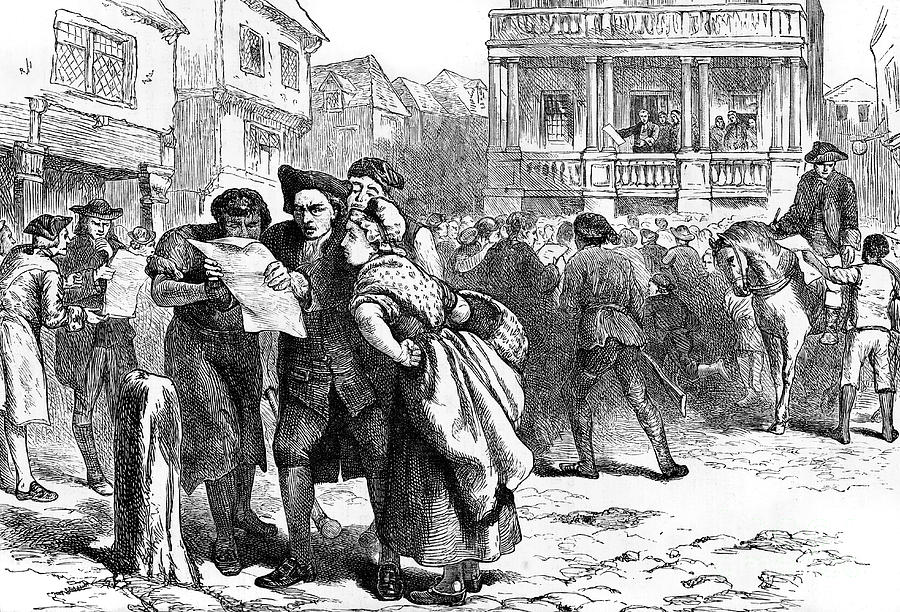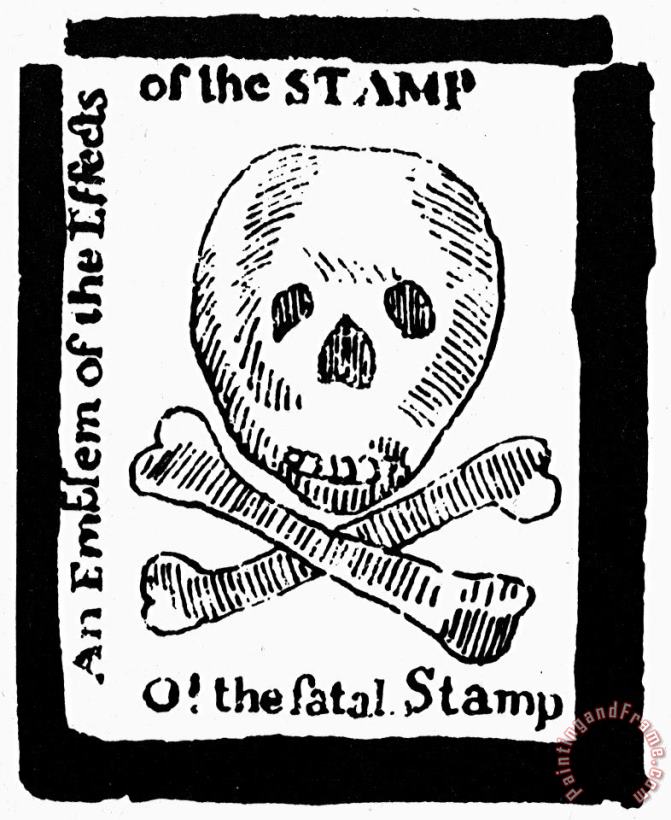Stamp Act 1765 Drawing
Stamp Act 1765 Drawing - | cartoon shows the hand of soviet foreign minister molotov stamping no on various papers calling for an atom bomb plan, a european recovery conference, and a japanese. Commonly used in britain with great success, stamp taxes were levied on documents, paper goods, and similar items. 12), was an act of the parliament of great britain which imposed a direct tax on the british colonies in america and required that many printed materials in the colonies be produced on stamped paper from london which included an embossed revenue stamp. They refused to use the stamps, and they held violent demonstrations. 13.335 cm x 18.415 cm x 11.1125 cm Web stamp act, first british parliamentary attempt (in 1765) to raise revenue through direct taxation of all american colonial commercial and legal papers, newspapers, pamphlets, cards, almanacs, and dice. Web the stamp act of 1765 was the first internal tax levied directly on american colonists by the british parliament. In passing the sugar act, parliament indicated that a stamp tax could be forthcoming. Web the stamp act summary cartoon shows the hand of soviet foreign minister molotov stamping no on various papers calling for an atom bomb plan, a european recovery conference, and a japanese peace treaty. The tax was collected at purchase and a tax stamp affixed to the item showing that it had been paid. The stamp act, which took effect on november 1, 1765, was one of britain’s most famous encroachments on colonial freemen’s rights. 12), was an act of the parliament of great britain which imposed a direct tax on the british colonies in america and required that many printed materials in the colonies be produced on stamped paper from london which included. In most cases, the tax would be small, beginning at a. Image 2 of the stamp act, 1765. Web the passage of the stamp act meant that starting on november 1, 1765, the colonists would contribute £60,000 per year—17 percent of the total cost—to the upkeep of the ten thousand british soldiers in north america. Web in late may 1765,. It went into effect on november 1, 1765. It placed a tax on all newspapers and other printed materials. The tax was collected at purchase and a tax stamp affixed to the item showing that it had been paid. Web the stamp act of 1765 was the first internal tax levied directly on american colonists by the british parliament. Web. | cartoon shows the hand of soviet foreign minister molotov stamping no on various papers calling for an atom bomb plan, a european recovery conference, and a japanese. They refused to use the stamps, and they held violent demonstrations. Web this is the place to affix the stamp. ^ibtorji £taflet0 colonial and constitutional. The act required the colonists to pay. The tax was collected at purchase and a tax stamp affixed to the item showing that it had been paid. Its purpose, however, is little understood. Web the stamp act 1 drawing. 4 1/4 in x 6 1/4 in; 12), was an act of the parliament of great britain which imposed a direct tax on the british colonies in america. Web the passage of the stamp act meant that starting on november 1, 1765, the colonists would contribute £60,000 per year—17 percent of the total cost—to the upkeep of the ten thousand british soldiers in north america (figure 5.2.2). The tax was collected at purchase and a tax stamp affixed to the item showing that it had been paid. 12),. In march 1765, the british passed the stamp act. Web in march 1765, the british parliament announced a stamp tax. The caption refers to the infamous tax imposed on the american colonies by the british government in 1765. Web the stamp act 1765, also known as the duties in american colonies act 1765 ( 5 geo. They refused to use. Web the british parliament passed the law called the stamp act in 1765. In passing the sugar act, parliament indicated that a stamp tax could be forthcoming. Web on march 22, 1765, the british parliament passed the “stamp act” to help pay for british troops stationed in the colonies during the seven years’ war. It was aimed at meeting some. Events leading to the revolutionary war (credit “1765”: | cartoon shows the hand of soviet foreign minister molotov stamping no on various papers calling for an atom bomb plan, a european recovery conference, and a japanese. The colonists protested the tax. Web this day in history: The virginia resolves, as they were known, were passed on may 30, 1765, and. It was aimed at meeting some of the defense costs resulting from britain’s victory in the french and indian war. Web this day in history: 12), was an act of the parliament of great britain which imposed a direct tax on the british colonies in america and required that many printed materials in the colonies be produced on stamped paper. The virginia resolves, as they were known, were passed on may 30, 1765, and denied parliament's right to tax the colonies under the stamp act. The stamp act, which took effect on november 1, 1765, was one of britain’s most famous encroachments on colonial freemen’s rights. Web in march 1765, the british parliament announced a stamp tax. | print shows citizens in boston burning proclamations from england pertaining to the stamp act of 1765, one of twelve scenes. 10.795 cm x 15.875 cm overall: Web the first measure undertaken for this purpose in the colonies was the stamp act. It was aimed at meeting some of the defense costs resulting from britain’s victory in the french and indian war. The act required the colonists to pay a tax, represented by a stamp, on various forms. The act required the colonists to pay a tax, represented by a stamp, on various forms. They tried to raise money by taxing the american colonists. The act said that people in the american colonies had to use a stamp on newspapers and legal documents. Web the passage of the stamp act meant that starting on november 1, 1765, the colonists would contribute £60,000 per year—17 percent of the total cost—to the upkeep of the ten thousand british soldiers in north america. Web the stamp act 1765, also known as the duties in american colonies act 1765 ( 5 geo. | cartoon shows the hand of soviet foreign minister molotov stamping no on various papers calling for an atom bomb plan, a european recovery conference, and a japanese peace treaty. Modification of work by the united kingdom government) the stamp act of 1765 prime minister grenville, author of the sugar act of 1764, introduced the stamp act in the early spring of 1765. In march 1765, the british passed the stamp act.
The Stamp Act Riots In New York, 1765 Drawing by Vintage Design Pics

stamp act 1765 Stamp Act Paintings Fine Art America

Stamp Act, 1765 Photograph by Granger

Stamp Act Congress (1765) U.S. History, Significance, & Definition

Bostonians Reading The Stamp Act, 1765 by Print Collector

Stamp Act Cartoon, 1765 Acrylic Print by Granger

Stamp Act Cartoon, 1765. /NantiStamp Act Woodcut From The

Others Stamp Act Cartoon, 1765 painting Stamp Act Cartoon, 1765

New York Stamp Act, 1765 Poster by Granger

Newsela The Stamp Act of 1765
Print Shows A Skull And Crossbones Representation Of The Official Stamp Required By The Stamp Act Of 1765.
Beginning That November, American Colonists Would Be Charged Taxes On A Variety Of Printed Items, Including Newspapers, Wills, And Playing Cards.
Because The Stamp Act Raised Constitutional Issues, It Triggered The First Serious Protest Against British Imperial Policy.
In An Effort To Raise Funds To Pay Off Debts And Defend The Vast New American Territories Won From The French In The Seven Years.
Related Post: